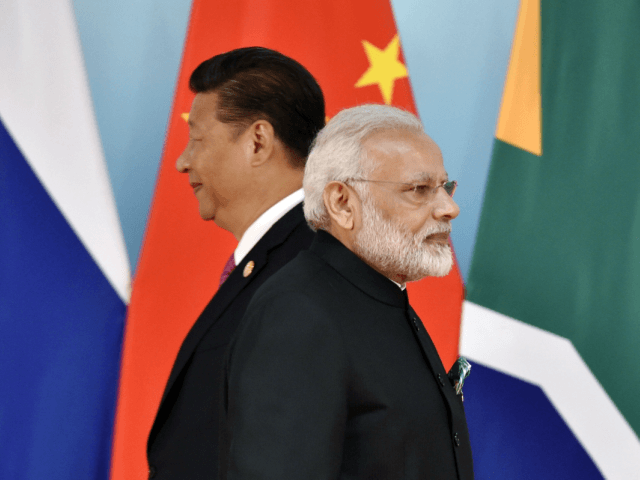
Bloomberg News reported on Tuesday that India is “developing a land pool nearly double the size of Luxembourg to lure businesses moving out of China.”
The land pool is not one contiguous area, but a total of 461,589 hectares of industrial property that will be offered for speedy lease at good prices to businesses that wish to relocate out of China after the coronavirus pandemic.
According to Bloomberg, India’s plans for poaching foreign firms from China are still being fleshed out, but one of the most urgent priorities was signaling to corporate buyers that India’s normally slow and confusing process for acquiring land and construction permits would be greatly streamlined. No less of a global business behemoth than Saudi Arabia’s national oil company Aramco has been thwarted from building a $44 billion refinery in India because it could not cut through a web of red tape to buy the land it needed.
Bloomberg’s anonymous source – officials from the relevant ministries declined to comment on the record – said India is looking at offering more land from its special economic zones (SEZ) to foreign buyers or renters because those areas already have “robust infrastructure in place.” The SEZs were always intended to lure foreign business so, presumably, this would mean making them larger and acting quickly to extend their infrastructure into adjacent areas.
American, Japanese, and South Korean companies were reportedly among those most interested in hearing India’s offers. The Bloomberg piece did not delve into exactly how India is marketing its locations to companies currently located in China, or what incentives will be developed specifically to persuade firms to move from China to India.
Like most other countries battling the Wuhan virus epidemic, India took a huge hit to its economic growth and employment. Contrary to the emphasis placed on bringing in foreign business clients by Bloomberg’s source, the Economic Times of India on Monday reported that Prime Minister Narendra Modi’s “fiscally constrained” administration is thinking about “reverting to a greater inward orientation,” stressing national self-reliance over global interdependence.
The Economic Times noted the contradiction between this ethos and the big push to woo foreign business away from China and suggested the Indian government should focus on ceding back the extraordinary powers it claimed during the pandemic, leave the private sector “free to rejuvenate production,” and perhaps use foreign investment captured from China to improve India’s national infrastructure for the benefit of both overseas tenants and local businesses.
The question of how likely foreign firms are to decamp from China, seeking new locations in India or elsewhere, is hotly debated. In March, the South China Morning Post (SCMP) suggested Beijing was up against a ticking clock to restore the confidence of foreign investors, lest they become a “hollow economy” after a post-pandemic exodus.
A bitter note in the SCMP’s report was that China’s most attractive feature for foreign industries, in addition to cheap labor, is the haven it provides from environmentalist hassles. China has very lax pollution rules, and Western activist groups have absolutely zero interest in pestering Beijing or its clients about them. India might not be able to offer quite the same level of indulgence.
Forbes reviewed data in April that showed American firms were already pulling out of China after the trade war, and the process accelerated during the pandemic.
“The main beneficiaries of this are the smaller southeast Asian nations, led by Vietnam. And thanks to the passing of the U.S. Mexico Canada Agreement, Mexico, for all its problems with drug cartels, has become a favorite spot for sourcing,” Forbes noted. The same data might have inspired India to make a stronger play for industries pulling out of China.
At roughly the same time, Reuters argued that most American firms did not have short-term plans to leave China, because the logistics of moving were so uncertain and the worldwide economic depression left international corporations with less money to pay for heavy relocation costs. Also, China moved very aggressively in April to send the message that its workforce and infrastructure would return to normal performance much faster than its competitors.
“Our survey results show that companies are considering adjustments to their business strategy, but there is no mass exodus as a result of COVID-19,” declared American Chamber of Commerce in Shanghai president Ker Gibbs, adding that over the longer term, the coronavirus crisis added “a new and unwelcome dimension to the conversation about decoupling.”
via Breitbart News
Enjoy this article? Read the full version at the authors website: https://www.breitbart.com
